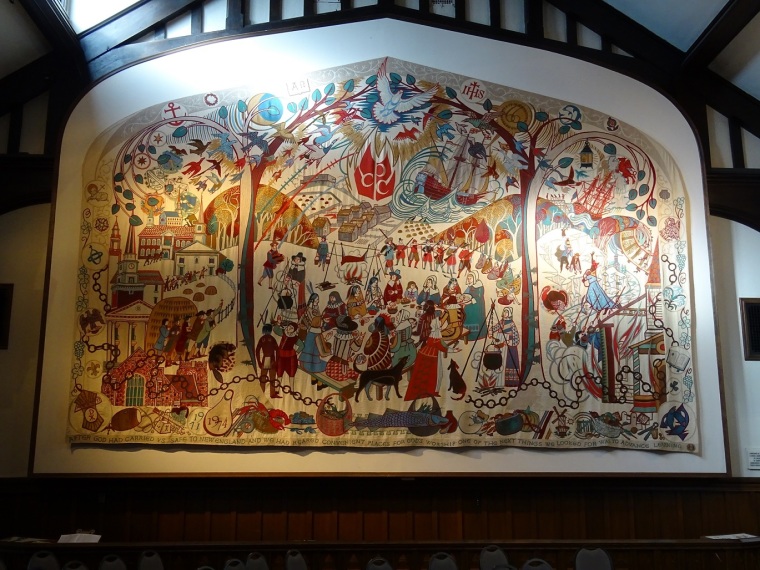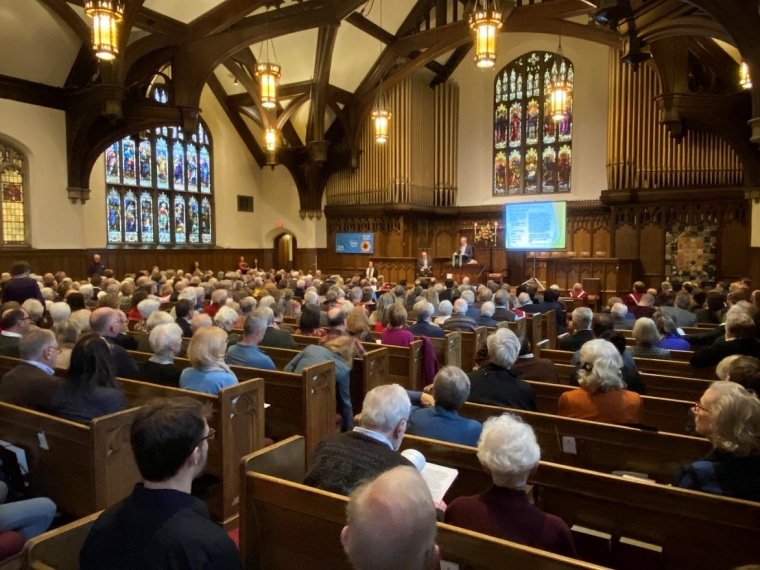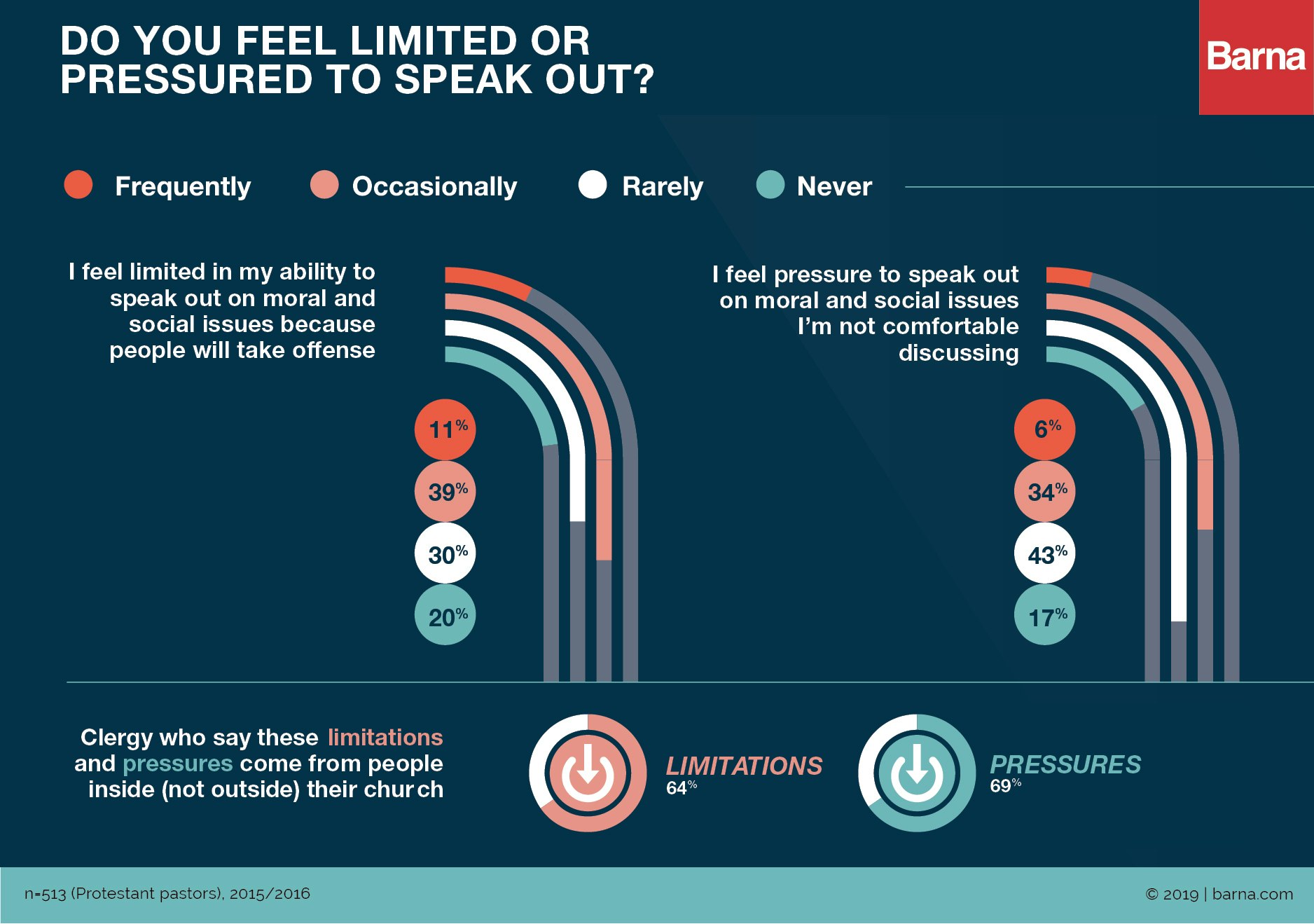The Plymouth Congregational Church of Minneapolis has voted to remove a 16 by 25 foot Thanksgiving tapestry that has hung in the historic church since 1974.
Reason? "It's racially offensive."
The church says the decision was rooted in their "commitment to racial justice and our desire to be inclusive..."
Upon which "rock" should Christ's Church be built: Plymouth or Peter's confession?
Be informed.
The Minneapolis Star Tribune reports: "The embroideries loom large at Plymouth Congregational Church in Minneapolis. Intricate and colorful, 16 feet tall by 25 feet wide, they cover a huge wall in the church's Guild Hall."
"But today, that wall is bare," the reporter notes.
The wall is bare because the historic church (established in 1857) has decided traditional Thanksgiving portrayal is offensive.
Plymouth leaders told the newspaper "one of the four seasonal embroideries contains images that are 'disturbing and hurtful'."
Titled "Churchmen In the New World", the church leadership has decided the tapestry depicts "Pilgrims and Native Americans gathered around a table---a harmful myth..." And "there is a slave ship in the scene," so it must go.
Back in June, the church sent a letter to the congregation calling for a decision on what action should be taken to right the wrong of the tapestries---that are, incidentally, the work of a group of ladies known as the "The Needlers," and that took decades to complete.
As you can see, the tapestries are beautiful.
This story in the Star Tribune and other sources is laborious in detail. But critically important to this church. As The Star says of the issue, "It's a complicated history."
The pastor says,
"I have a deep concern for how the church at large presents itself to the world." This enormous wall hanging "is definitely a statement piece I believe that hinders the mission of that church to be a place of sanctuary, refuge and welcome."
The "Needlers," of course, feel they have been left out of the discussion---after all, they did this as a work of love for the church and for history.
A spokesperson for the church says,
"The disagreement, which has divided the congregation, comes at a time when institutions of all kinds are reconsidering their reflections of history. Governments and museums, among others, have taken down, added context to, or switched out artworks deemed racist, outdated or inaccurate."
"But," she says "a church has a different calling...You don't expect to go into a church and have trauma triggered---which is what we have heard from people."
Which rock will you choose to build upon? Plymouth? Or Peter's confession?
No question, history is valuable. It shines a light on the present---and can help us chart our future.
Many great leaders have made many great quotes about history.
The folks at Plymouth Congregational will likely continue their discussion for decades to come. Some of the people will leave the church, while others gain more influence.
One of their comments resonates with me: "Churches are different...than museums"---"a church has a different calling."
I love the church. I love museums. But they are very different. And they do have different callings.
Tradition alone is empty. And a mad dash to remove it is destructive. But it is often the most useful tool in the religious progressive's demolition tool bag---because it can and does sometimes become a distraction.
History can also light the path forward.
Tradition can become so important to the church, however, that the attention of the church becomes not the "rock" of Christianity, but a stumbling stone carved from the modern thought---"How to relate to the world."
In a declining culture, what should be more important: tapestries that might trigger anxieties or the Gospel that will save an individual from eternal hell?
The Rock.
When Jesus declared to Peter that (Matt. 16:18) "upon this rock I will build my church, and the gates of hell will not prevail against it," He affirmed which rock is most important.
I am fully aware that there are those who believe that Jesus was declaring that "Peter" himself was the rock upon which Christ would build His church.
Jesus had never explicitly taught Peter and the other disciples the fullness of His identity, and He recognized that God sovereignly opened Peter's eyes, revealing to him who Jesus really was. His confession of Christ as Messiah poured from him---a heart-felt declaration of Peter's personal faith in Jesus Christ.
Personal faith in Jesus Christ is the hallmark of the Christian faith.
The word for "Peter" means small stone (John 1:42). Jesus used a word that means boulder, not small stones, in His declaration. The "wise man" of Matthew 7:24-25 built his house upon the "boulder", not little stones.
Peter, in his first epistle (1 Peter 2:5), declares that the church is made of numerous small "living stones," who like Peter confess that "Jesus is the Christ, the Son of the Living God."
Pastor's hesitant to speak to the culture.
Barna Survey, taken earlier this year, discovered that many pastors feel reluctant to address the real issues of the day because they involve "politics."
Yet pastors repeatedly find themselves buried in these kinds of debates that have no eternal consequences.
Barna said this in their report:
While most pastors feel it is an important part of their role to help congregants understand the sensitive social and cultural issues of our day, such topics are, well … sensitive. We wanted to know if pastors felt limited or pressured when it comes to speaking about controversial topics. Half of Christian pastors says they frequently (11%) or occasionally (39%) feel limited in their ability to speak out on moral and social issues because people will take offense. The other half of pastors say they only rarely (30%) or never (20%) feel limited in this way. When asked to identify the source of the concerns, pastors are much more likely to say that they feel limited by those inside the church than those outside. In other words, the reactions of those in the pews are most on the minds of today’s pastors.
Their silence then creates a vacuum that is quickly filled with year-long discussions about "trigger" tapestries, murals, colors of carpet, and who is in charge of what---while the world goes to hell in a handbasket.
The church needs leadership like Peter who stood in the streets of Jerusalem and told his fellow Jews they had killed the Messiah, but He had been resurrected and could save them from their sins.
That message will change the world. When 3000 people are added to the church, tapestries and Indians and Pilgrims become terribly insignificant in light of God's message.
Be Informed. Be Faithful. Be Bold. Be Prayerful. Be Blessed.



